Operator Licence Compliance Audit: A Comprehensive Guide
An operator licence compliance audit is an essential process for ensuring that a business operating commercial vehicles adheres to the legal standards set by regulatory authorities. This audit is designed for companies holding an operator’s licence, enabling them to confirm compliance with all regulations and avoid potential fines or legal actions.
What is an Operator Licence Compliance Audit?
An operator licence compliance audit involves a thorough review of a company’s transport operations to ensure they meet all legal and regulatory requirements. This audit is crucial for businesses that hold an operator’s licence, as it helps maintain standards and prevents non-compliance.
Benefits of an Operator Licence Compliance Audit
- Ensures Legal Compliance: Regular audits help businesses stay compliant with transport regulations.
- Identifies Risks: Audits can pinpoint areas of risk, allowing businesses to address them proactively.
- Improves Efficiency: By streamlining operations, audits can enhance overall efficiency.
Risks of Non-Compliance
Failing to comply with operator licence regulations can lead to severe penalties, including fines, suspension of the licence, or even legal action. Non-compliance can also damage a company’s reputation, leading to a loss of business.
Legal and Regulatory Context
In the UK, the Driver and Vehicle Standards Agency (DVSA) oversees operator licence compliance. According to GOV.UK, operators must adhere to strict guidelines regarding vehicle maintenance, driver hours, and record-keeping.
Costs Involved in Compliance Audits
The cost of an operator licence compliance audit can vary based on the size and complexity of the business. While there is an upfront cost, the investment can save money in the long run by avoiding fines and improving operational efficiency.
How to Implement an Operator Licence Compliance Audit
- Engage a qualified auditor familiar with transport regulations.
- Review all relevant documentation, including vehicle maintenance records.
- Conduct interviews with key personnel to assess compliance awareness.
- Identify any areas of non-compliance and develop a corrective action plan.
- Follow up on the implementation of corrective actions.
Common Mistakes to Avoid
- Neglecting regular audits, which can lead to unnoticed compliance issues.
- Failing to update records and documentation regularly.
- Overlooking the importance of driver training in compliance.
Pros and Cons of Operator Licence Compliance Audits
| Pros | Cons |
|---|---|
| Ensures legal compliance and reduces risk. | Initial cost can be high for some businesses. |
| Improves operational efficiency. | Time-consuming process. |
FAQs
What is an operator licence compliance audit?
An operator licence compliance audit is a review process that ensures a transport business complies with all legal and regulatory requirements.
Who needs an operator licence compliance audit?
Businesses that operate commercial vehicles and hold an operator’s licence need this audit to ensure compliance with regulations.
How often should compliance audits be conducted?
It is recommended to conduct audits annually or whenever there are significant operational changes.
What are the key benefits of a compliance audit?
The key benefits include ensuring legal compliance, identifying operational risks, and improving business efficiency.
Key Takeaways
Operator licence compliance audits are crucial for businesses in the transport sector. They ensure adherence to legal requirements, improve efficiency, and help identify potential risks. While there are costs involved, the benefits of avoiding fines and improving operations outweigh the initial expenses.
Speak to a Transport Compliance Expert
Get tailored guidance in a free 30-minute call. Contact us today.





